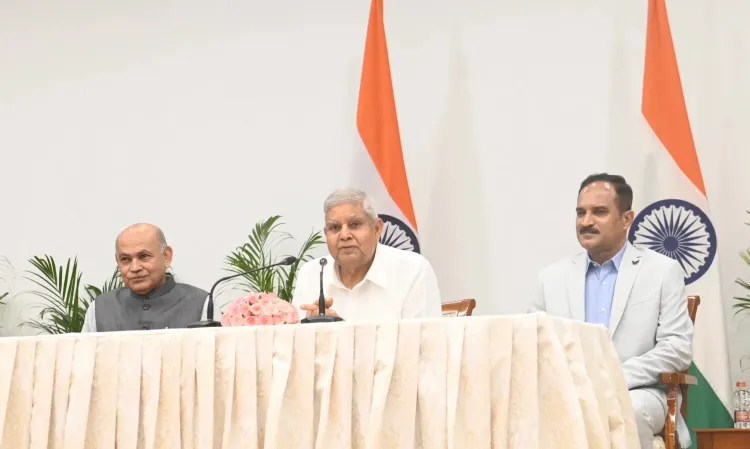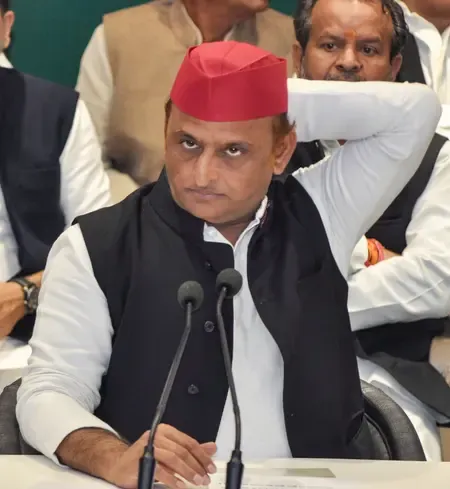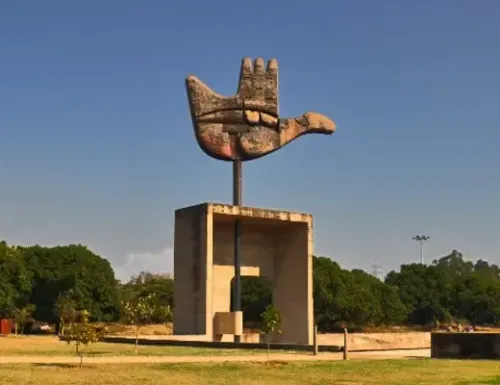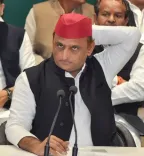What Does June 25, ‘Samvidhaan Hatya Diwas’ Remind Us? - Vice-President Dhankhar

Synopsis
Key Takeaways
- Importance of remembering historical events like the Emergency.
- Understanding the violation of democratic rights during the Emergency.
- The role of the judiciary in upholding or undermining democracy.
- Encouragement for youth to protect democratic values.
- The significance of Samvidhaan Hatya Diwas in contemporary India.
New Delhi, June 20 (NationPress) Vice-President Jagdeep Dhankhar, engaging with attendees of the 7th Batch of Rajya Sabha internship program (RSIP-7) at the Vice-President Enclave in New Delhi on Friday, brought attention to a significant historical event — the Emergency.
He stated, “Today, I reflect on a somber incident that marks a painful anniversary within a week. In 1975, India was celebrating its 28th year of independence from British colonial rule. At midnight on June 25, 1975, the then-President of India, Fakhruddin Ali Ahmed, signed, under the direction of then-Prime Minister Smt. Indira Gandhi, a proclamation of Emergency. This was the first occurrence of such an event.”
Dhankhar pointed out, “You are thoughtful individuals. A President is not supposed to act solely on the advice of the Prime Minister. The Constitution is explicit. There exists a council of ministers led by the Prime Minister to assist and advise the President. This was one infringement, but what followed? Over 100,000 citizens were imprisoned within hours.”
Reflecting on the disintegration of democratic institutions, he remarked, “People were forcibly removed from their homes and incarcerated nationwide. Our Constitution ceased to function, and the media was silenced. Numerous respected newspapers published blank editorial pages.”
Sharing a harrowing account of those detained, he noted, “Many of those suddenly imprisoned included future Prime Ministers of the country — Atal Bihari Vajpayee, Morarji Desai, and Chandra Shekhar Ji. Many became Chief Ministers, Governors, Scientists, and other distinguished individuals who were around your age.”
Addressing the judiciary's role, Dhankhar underscored, “That period witnessed the fundamental essence of democracy topple during distress. The public looks up to the Judiciary. Nine High Courts across the nation have affirmed that, regardless of circumstances, individuals possess fundamental rights and access to justice. Regrettably, the Supreme Court overturned all nine High Court decisions, issuing a ruling that stands as one of the darkest moments in the history of any judicial institution that upholds the rule of law. The ruling asserted that the Executive has the authority to maintain an Emergency for as long as deemed necessary.”
“Furthermore, it upheld that during an Emergency, fundamental rights are non-existent. Thus, the Supreme Court's verdict legitimized dictatorship, authoritarianism, and despotism in this land, Bharat, the oldest and now most vibrant democracy. It is crucial for you to remember this, as you were not there. I was,” Dhankhar expressed.
Highlighting a significant development, he added, “Consequently, the current government wisely issued a notification on July 11, 2024, for a valid reason — we were commemorating the 75th year of our Republic. We gained independence in 1947, and the 75th year of our Republic was crucial. Hence, this date was officially recognized through a gazette notification on July 11, 2024 — declaring June 25th as Samvidhaan Hatya Diwas.”
He concluded with a call to action, stating, “This serves as a solemn reminder that we must be the guardians and protectors of our democratic values. Therefore, I urge all of you to analyze carefully. Only then will you comprehend the true cost of democracy.”
Emphasizing another vital point, Dhankhar said, “India is a nation that thrives on harmony, which entails practicing a religion of your own choosing. You should never be coerced into adopting a religion through enticing promises or temptations. Such actions threaten to undermine the essence of Indian identity. Everyone has the right to select their faith, but any form of coercion poses a challenge to our civilizational foundations. I assure you, this transformation is underway. Every individual holds the right and responsibility to address this.”









